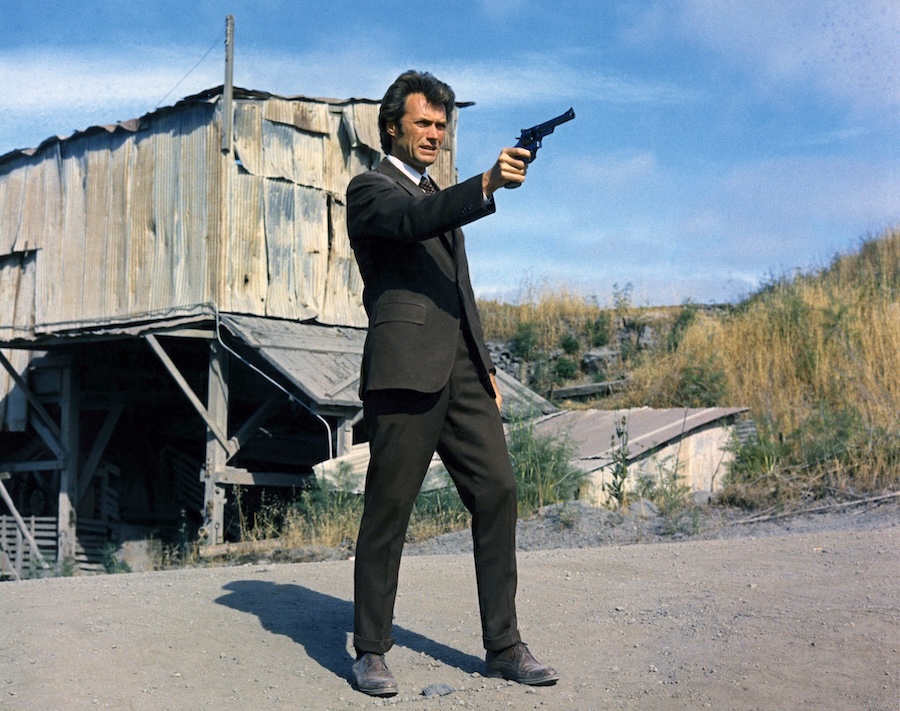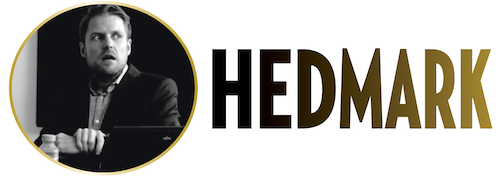
YOU DON’T ASSIGN HIM TO MURDER CASES. YOU JUST TURN HIM LOOSE.

After the premiere of what has become Clint Eastwood’s most famous film, there was a backlash. Several critics attacked the film for its, in the words of Roger Ebert, ”fascist moral position”. Pauline Kael agreed that it was fascist and called it ”deeply immoral”. At the 44th Academy Awards, feminists protested against the film, even though it wasn’t nominated for any Oscars. There is some truth to the controversy, but isn’t the greatest problem with Inspector Harry Callahan that he’s a bad police officer?
Threatening to shoot innocent people
When a woman in a swimming pool is shot and killed by someone from a rooftop, San Francisco cop Harry Callahan (Eastwood) is assigned the case. He finds a message where the killer wants $100,000 or else he’ll keep shooting innocent people all over the city. True to his word, ”Scorpio” (as he calls himself) soon kills a Black boy.
Callahan, who’s reluctantly partnered with another cop, Chico Gonzalez (Reni Santoni), has reason to believe that Scorpio will target a Catholic priest and the two men set a trap. However, Scorpio escapes after yet another murder, and now really turns the screws on the city…
An iconic role
It took a little while before Eastwood’s most iconic role came to him. The script went through many rewrites and was offered to many stars. At one point, John Milius got involved and he’s stated that it should be pretty clear what his contributions are – Dirty Harry’s infatuation with ”the most powerful hand gun in the world”, his bad-ass attitude, and also making Harry a loner. Even today he must be considered a controversial character because of his reactionary, ruthless attitude.
We buy into this because of Clint Eastwood’s unbeatable charisma, brilliantly counter-balanced by Andy Robinson’s creepy performance as Scorpio.
In order for the movie to be successful, Harry still wins at the end… but the irony of the film is that he’s bad at his job, constantly making a mess of the murder investigation by behaving as a bull in a china shop and seemingly having no clue how to respect laws and the U.S. constitution in order to guarantee a successful prosecution of the murderer. There’s an amusing scene where the district attorney at one point explains to Callahan why he must let Scorpio go and instead of realizing that it’s his own fault Harry looks at the district attorney like he’s lost his mind. Still, we buy into this because of Eastwood’s unbeatable charisma, brilliantly counter-balanced by Andy Robinson’s creepy performance as Scorpio, a character that was inspired by the real-life Zodiac killer. It’s also one of the director’s best thrillers, featuring a very tight story and making excellent use of many different San Francisco locations. Tension rises right from the start as Scorpio and his agenda is established, and the cat-and-mouse game between him and Callahan is ingeniously varied throughout the film. At the same time, there are a few intriguing, intense scenes where we are treated to the most reckless aspects of Callahan’s personality, especially that incredible scene where Harry stops a bank robbery and has a little fun with one of the injured criminals (”Do you feel lucky?”).
There are times when I’m reminded of another classic cop movie set in San Francisco, Bullitt (1968); perhaps one reason is that Lalo Schifrin wrote another terrific jazzy score for this one, at its most effective in the opening scenes.
Watching this excellent thriller again was fun, but I feel a little dirty after doing some googling and learning just how much online Nazis (alt-right) love it. I guess we’ll just have to take it back and not allow a bunch of basement-dwelling, white, male Scorpio wannabes define Don Siegel’s work.
Dirty Harry 1971-U.S. 102 min. Color. Widescreen. Produced and directed by Don Siegel. Screenplay: Harry Julian Fink, R. M. Fink, Dean Riesner. Music: Lalo Schifrin. Cast: Clint Eastwood (Harry Callahan), Harry Guardino (Al Bressler), Reni Santoni (Chico Gonzalez), John Larch, Andy Robinson, John Vernon.
Trivia: John Wayne, Robert Mitchum, Frank Sinatra, Steve McQueen and Burt Lancaster were considered for the lead role, Irvin Kershner and Sydney Pollack as director. Followed by four sequels, starting with Magnum Force (1973).
Quote: “I know what you’re thinking. ‘Did he fire six shots or only five? Well to tell you the truth, in all this excitement I kinda lost track myself. But being this is a .44 Magnum, the most powerful handgun in the world and would blow your head clean off, you’ve gotta ask yourself one question: ‘Do I feel lucky?’ Well, do ya, punk?” (Eastwood)
Last word: “I was in postproduction [on Play Misty for Me], and they called up and asked, ‘Are you still interested in Dirty Harry?’ I said, ‘What happened to Frank Sinatra?’ And they said, ‘Frank Sinatra’s got some problem with his hand and he can’t hold a gun.’ That sounded like a pretty lame excuse, but it didn’t matter to me. I said, ‘I’ll do it.’ But since they had initially talked to me, there had been all these rewrites. I said, ‘I’m only interested in the original script.’ [In the rewrites] they had marine snipers coming on in the end, and I said, ‘No. This is losing the point of the whole story, of the guy chasing the killer down. It’s becoming an extravaganza that’s losing its character.’ (Eastwood, MTV)
